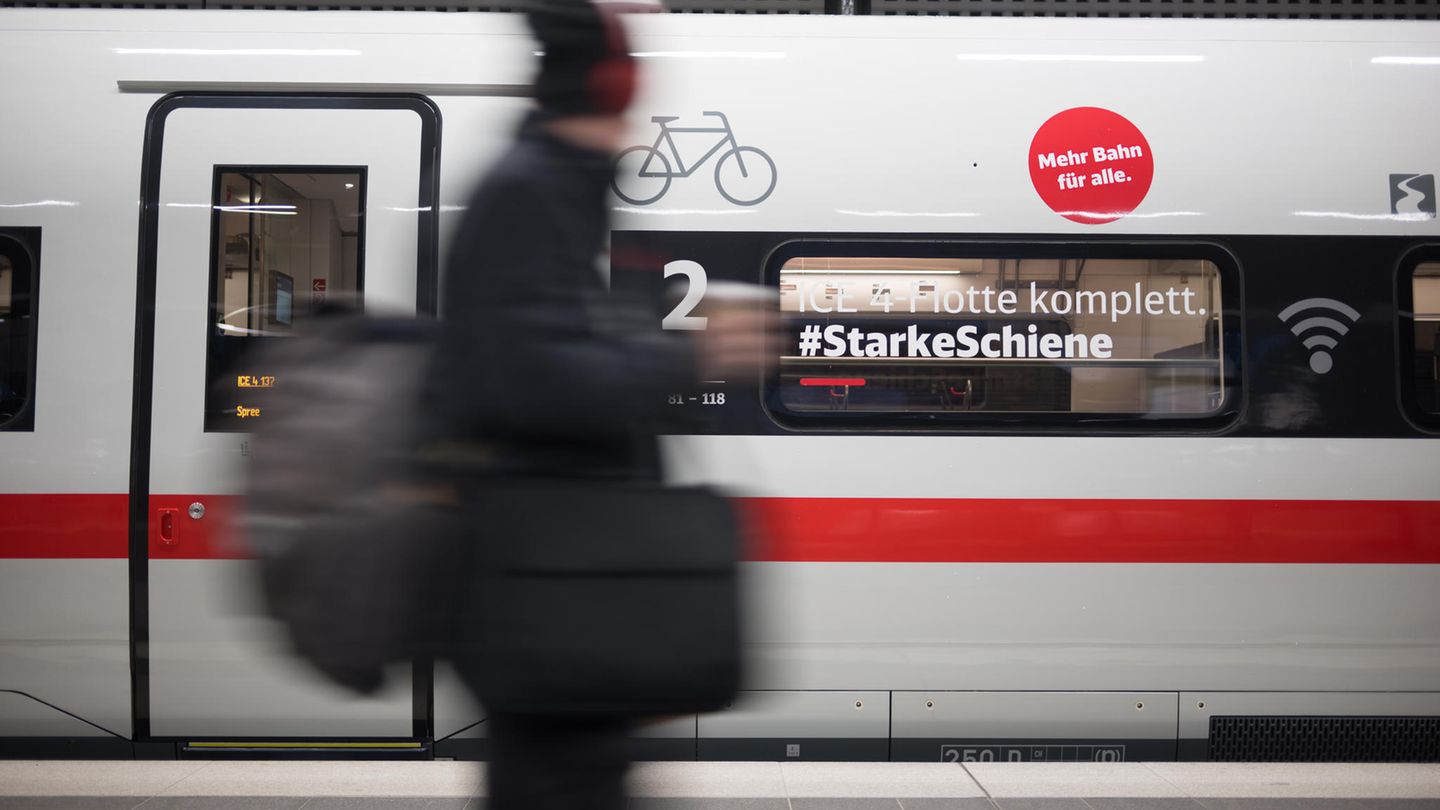Deutsche Bahn only earns money on the roads and it doesn’t get any more punctual. How much bonuses do the bosses get? You should know these numbers from the balance sheet.
1.8 billion rail riders…
… the DB counted last year, more than ever before. It is one of the friendliest figures in the 2023 balance sheet. It shows that people take the train even if they reach their destination hours later and the long-distance train is not reliable.
64 percent of ICEs to ICs…
…made it to the finish in less than six minutes. In other words: More than one in three trains was late last year. That was even worse than the year before. The fact that customers are still so loyal has to do with the Deutschland Ticket, which brought additional passengers, especially to the DB Regio. But probably also because there are no real alternatives. Traffic congestion on the roads has increased and air traffic is putting a strain on the climate. According to DB information, train riders on the ICE saved around 7.5 million tons of greenhouse gas emissions in 2023 compared to traveling by car. For next year, the railway aims to get 70 percent of its long-distance trains to their destination on time, despite record construction sites on the rail lines. The bets against it are already running.
964 million euros loss…
… the railway made in the operational area, before interest and taxes. The year before, the railway earned around 1.2 billion euros. What sounds like bad business management is, however, more evidence that the DB has learned something new. Instead of waiting for the state to transfer money, the railway has already started and pre-financed around one billion euros for infrastructure measures. The federal government now wants to transfer these in 2024. “We consciously accepted this,” said DB boss Richard Lutz, “and built more in 2023 than ever before.”
However, the result was also impacted by the rail strikes, which cost the DB around 200 million euros. The biggest loss in 2023 was again made by the DB freight subsidiary DB Cargo, which incurred losses of almost half a billion euros. The year before there were even more. DB’s freight transport division has not made any money for years and is only surviving thanks to government aid. The EU Commission has already initiated competition proceedings against this long-standing subsidy, which, as with France’s SNCF, could end with the break-up of the freight railway subsidiary. The DB network subsidiary, which has been a reliable source of profit for many years, is also in the red.
1 cash cow…
… is, of all things, DB donors who earn most of their money on the streets. Without the 1.1 billion euros earned there, DB’s balance sheet would look bleak. But Schenker is to be sold, and there are a few interested parties. However, the condition for the railway is that the proceeds are higher than expected profits in the coming years; sales proceeds of 13.5 billion euros are considered desirable. This should then be used to pay off the 34 billion euro debt.
0 bonuses…
… the railway board members received in 2023, meaning their remuneration was halved to around 5.4 million euros. Recently, the bonus regulations for railway executives came under heavy criticism after they received variable remuneration in 2022 – despite poor punctuality and dilapidated infrastructure. However, the board members did not receive any bonuses in 2020 and 2021.
50 kilometers…
… the railway network shrank last year, the electrified route length by 5 kilometers, the number of sidings by 5 and the number of switches by 288. This is what it says in the appendix: Attachments. “This shows that the DB Netz is still in dismantling mode in some places,” complains Peter Westerberger, managing director of the freight railways.
Source: Stern




